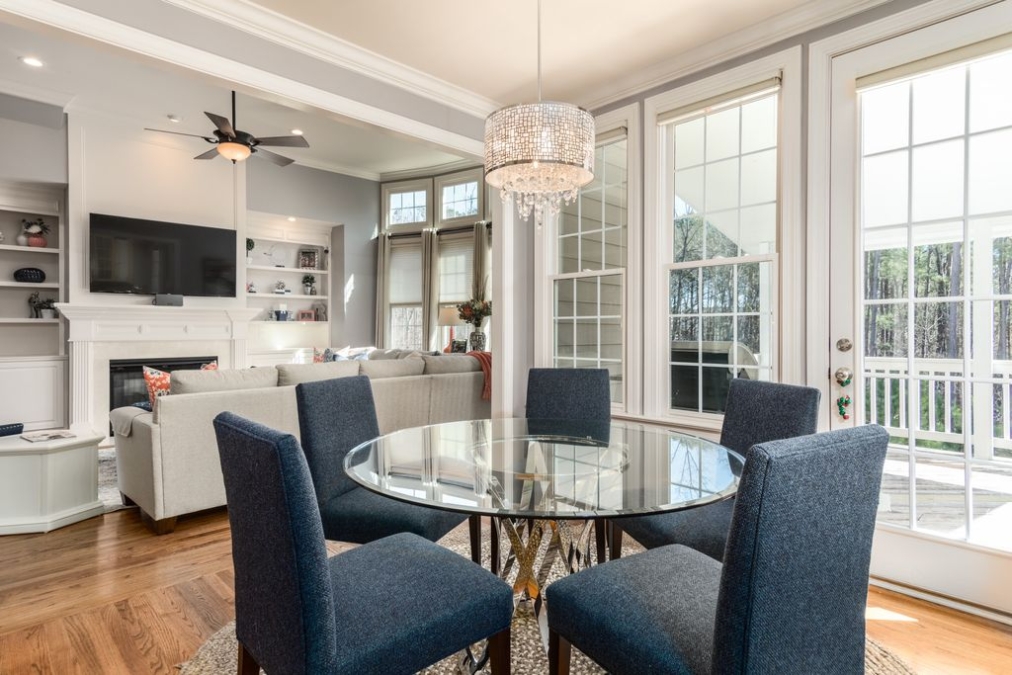Navigating the Market: A Guide to Buying Bank Owned Homes
By Budget Savvy Hub | Updated January 30, 2024
Bank owned homes, also known as real estate owned (REO) properties, are properties that have been repossessed by a bank or lender due to the previous owner’s failure to make mortgage payments. These properties are often sold at a discount, making them an attractive option for buyers looking for affordable real estate opportunities. In this guide, we will explore the ins and outs of buying bank owned homes, from understanding what they are to navigating the purchase process.
Table of Contents
Key Takeaways
- Bank owned homes are properties repossessed by banks due to non-payment of mortgages.
- Bank owned homes offer potential cost savings and investment opportunities for buyers.
- Finding bank owned homes requires a combination of research, networking, and utilizing online resources.
- Evaluating bank owned homes involves assessing their condition, understanding the financial aspects, and being aware of legal considerations.
- Negotiating the purchase of a bank owned home may involve strategies for price negotiation, dealing with multiple offers, and navigating the purchase process.
Understanding Bank Owned Homes
What are bank owned homes?
Bank owned homes, also known as REO (Real Estate Owned) properties, are houses that have been repossessed by a bank after the previous owner failed to keep up with their mortgage payments. These homes are then owned by the bank and are put up for sale, often at a lower price point than comparable properties on the market.
Foreclosure is the legal process through which the bank acquires the property. It’s important to understand that bank owned homes can come in various states of condition, from well-maintained to needing significant repairs.
Bank owned homes can offer a unique opportunity for buyers, but it’s crucial to approach these deals with due diligence and an understanding of the potential risks and rewards.
Finding bank owned homes can be a straightforward process if you know where to look. Here’s a quick list to get you started:
- Real estate listings
- Bank and lender websites
- Government-owned property listings
- Real estate auctions
How do bank owned homes differ from traditional homes?
Bank owned homes, often referred to as REO (Real Estate Owned) properties, are unique in the real estate market. Unlike traditional homes, which are sold by the homeowner, bank owned homes are sold by financial institutions after a foreclosure process. This key difference impacts several aspects of the buying experience.
Bank owned homes may come with a history of neglect, as they could have sat empty for a period of time or have been subject to inadequate maintenance by the previous owners. As a result, they are often sold ‘as-is,’ potentially requiring more upfront repairs or renovations compared to traditional homes.
The purchase process for bank owned homes can be more complex and time-consuming, involving additional paperwork and potential legal hurdles.
Here are some distinct characteristics of bank owned homes:
- Typically lower priced than comparable properties
- Sold ‘as-is’ without seller disclosures
- May involve a more complicated closing process
- Often require a more thorough inspection
When considering a bank owned home, it’s essential to weigh these differences carefully to determine if the potential savings are worth the extra effort and risk involved.
Benefits of buying bank owned homes
Purchasing bank owned homes can present a unique opportunity for homebuyers and investors alike. One of the primary advantages is the potential for reduced pricing. Since banks are often eager to offload these properties and recoup their losses, buyers may find homes listed below market value. This can result in significant savings, especially in competitive housing markets.
Another benefit is the transparency during the sales process. Bank owned homes typically come with clear titles and without the emotional attachment of a traditional seller, which can simplify negotiations. However, it’s important to be aware of the potential for higher closing costs and the need for repairs or renovations.
- Reduced pricing below market value
- Clear titles and simplified negotiations
- Possibility of less competition
While bank owned homes can offer financial advantages, buyers should exercise caution. It’s essential to thoroughly assess the property’s condition and understand the full scope of financial responsibilities involved.
Remember, using a credit card for mortgage payments can offer convenience, but it’s crucial to consider the associated high interest rates and fees, as well as the potential pitfalls that could arise.
Finding Bank Owned Homes
Where to look for bank owned homes
Finding bank owned homes can be a straightforward process if you know where to look. One of the primary sources for locating these properties is through bank websites. Many financial institutions list their foreclosed properties online, providing a convenient way to browse available homes.
Real estate brokers and agents often have insider knowledge on bank owned homes that are about to hit the market. Building a relationship with these professionals can give you a head start in your search.
It’s essential to be proactive and persistent in your search for bank owned homes, as the market can be competitive.
Additionally, specialized online platforms and auction sites are dedicated to listing foreclosed properties. These can be valuable resources for finding a wide range of options in different locations.
Working with real estate agents
Working with real estate agents can significantly streamline the process of finding and purchasing bank owned homes. These professionals have access to multiple listing services (MLS) and a network of industry contacts that can help you uncover the best deals. Real estate agents are particularly valuable for navigating the complexities of bank owned transactions, which can differ significantly from traditional home purchases.
Real estate agents often specialize in foreclosed properties and can provide insights into the market that you might not find elsewhere. They can assist with scheduling showings, advising on the offer process, and ensuring that all necessary paperwork is completed accurately and on time.
- Evaluate the agent’s experience with bank owned homes.
- Discuss your specific needs and investment goals.
- Ensure clear communication regarding fees and services provided.
Remember, a good agent will not only help you find a property but also advocate for your interests throughout the buying process.
Online resources for finding bank owned homes
The internet is a powerful tool for locating bank owned properties. Websites specializing in foreclosures offer comprehensive listings that can be filtered by location, price, and property type. Utilize these platforms to streamline your search and compare various homes at your convenience.
Real estate auction sites are another valuable resource. They provide opportunities to bid on bank owned homes, often at lower prices. Keep in mind that auction purchases can be competitive and may require swift decision-making.
- Zillow Foreclosures
- RealtyTrac
- Auction.com
- Bank of America Real Estate Center
- Fannie Mae’s HomePath
Remember, while online resources are incredibly useful, they should be complemented with on-the-ground research and professional advice to ensure a well-rounded understanding of the property’s value and potential.
Evaluating Bank Owned Homes
Assessing the condition of bank owned homes
When considering the purchase of a bank owned home, it’s crucial to conduct a thorough assessment of the property’s condition. Bank owned homes may require significant repairs, which can affect both the budget and timeline for moving in. It’s advisable to hire a professional home inspector to uncover any potential issues that might not be visible during a casual walkthrough.
Inspection reports can reveal critical information about the home’s structure, systems, and any necessary repairs. Here’s a brief checklist to keep in mind during the inspection process:
- Structural integrity (foundation, walls, roof)
- Electrical system functionality
- Plumbing system condition
- Presence of mold or pests
- HVAC system efficiency
Remember, the cost of repairs should be factored into your overall financial plan for purchasing the home. This includes developing a budget, managing cash flow, and prioritizing debt repayment and emergency fund building.
Negotiating with the bank for a lower price may be possible if significant issues are discovered. However, banks typically sell these properties ‘as-is,’ so it’s important to be prepared for any outcome.
Understanding the financial aspects
When considering the purchase of a bank owned home, it’s crucial to understand the financial implications that differ from traditional home buying. Banks are typically motivated to sell these properties quickly, often resulting in a lower asking price. However, buyers should be aware that these homes are usually sold ‘as-is’, potentially leading to additional costs for repairs and renovations.
Financing for bank owned homes can also present unique challenges. Traditional mortgage options may still be available, but some banks offer special financing packages for their owned properties, which might include incentives such as lower interest rates or reduced closing costs. It’s important to compare these options carefully to ensure you’re getting the best deal.
- Review the property’s price against current market values
- Consider the potential costs for necessary repairs
- Explore financing options offered by the bank
- Calculate additional expenses such as property taxes and insurance
While the initial cost may be lower, the total investment should include the price of any renovations and long-term maintenance to truly assess the value of the purchase.
Understanding the financial landscape is essential for making an informed decision. A thorough analysis of all costs involved will help you determine if a bank owned home is a financially viable option for you.
Legal considerations when buying bank owned homes
When purchasing a bank owned home, it’s crucial to be aware of the legal nuances that can significantly affect the transaction. Due diligence is essential, as it involves verifying the title’s cleanliness, ensuring there are no outstanding liens or claims, and understanding any local regulations that may apply.
Title insurance is a wise investment when buying a bank owned property. It protects you from potential legal issues that might not be apparent at first glance. Here’s a simple checklist to keep in mind:
- Confirm that the property title is clear and transferable.
- Check for any existing liens or judgments against the property.
- Review any applicable homeowner association (HOA) rules or covenants.
- Ensure compliance with local zoning and building codes.
Remember, navigating the legal landscape requires attention to detail and a proactive approach. It’s often beneficial to consult with a real estate attorney who specializes in bank owned properties to avoid unforeseen legal complications.
Negotiating with creditors and understanding your financial situation are also part of the legal considerations, as they can influence the overall affordability and viability of the purchase.
Negotiating the Purchase
Strategies for negotiating the price
Negotiating the price of a bank owned home can be markedly different from a traditional real estate transaction. Banks are typically more rigid in their pricing, but there are still strategies that can help you secure a better deal. It’s essential to enter negotiations with a clear understanding of the property’s value and any associated costs of repairs or renovations.
Research is key when preparing to negotiate. Gather comparable sales data and be ready to present this information to substantiate your offer. Here are some strategies to consider:
- Start with a realistic offer that’s backed by market data.
- Be prepared to increase your offer in small increments.
- Highlight the benefits to the bank of a quick sale.
- Show flexibility in other terms, such as closing dates, to make your offer more attractive.
Remember, the goal is to find a win-win situation where the bank minimizes loss, and you achieve a fair purchase price.
While the bank may not move much on price, they may be more flexible on other terms. This can include paying for closing costs or providing a home warranty. These concessions can add value to the deal and should be considered when calculating the overall cost of the purchase.
Dealing with multiple offers
When a bank owned home attracts multiple offers, it’s crucial to stand out as a serious buyer. One strategy is to present a clean offer with minimal contingencies. This signals to the bank that you’re committed and can move quickly through the purchase process.
Timing is also a key factor. Submitting your offer promptly can give you an edge over the competition. Ensure that your financing is in order, and consider including a pre-approval letter with your offer.
- Review the property’s value and make a competitive offer.
- Personalize your offer letter to create a connection.
- Stay flexible with your terms to appeal to the seller’s preferences.
Remember, banks are often more motivated by a smooth transaction than a slightly higher offer price. Your ability to close without complications can be just as persuasive as the amount you’re willing to pay.
Navigating the purchase process
Once you’ve found a bank owned home and are ready to make a purchase, navigating the purchase process is crucial. This involves a series of steps that, if followed correctly, can lead to a successful acquisition. First, ensure that you have your financing in order. A pre-approval letter from a lender will strengthen your offer and show that you are a serious buyer.
Next, work with your real estate agent to submit a strong offer. Remember, banks are looking to recoup losses, so your offer should be competitive yet reasonable. It’s also important to be prepared for a potentially lengthy closing process. Bank owned properties often come with additional paperwork and requirements.
When it comes to bank owned homes, due diligence is key. Make sure to review all documents thoroughly and understand the terms of the sale.
Finally, be aware of the potential for multiple offers on the property. In such cases, having a clear strategy and knowing your limits is essential. It’s not just about the highest bid, but also the strength of your financial position and the terms you’re willing to accept.
Conclusion
In conclusion, buying bank owned homes can be a lucrative opportunity for savvy investors and homebuyers. However, it’s important to approach the process with caution and thorough research. By understanding the risks and potential rewards, individuals can make informed decisions and navigate the market with confidence. Whether seeking an investment property or a new home, bank owned homes offer a unique avenue for acquiring real estate at competitive prices. With the right knowledge and guidance, buyers can capitalize on this market segment and find valuable opportunities in the real estate landscape.
Frequently Asked Questions
Are bank owned homes the same as foreclosed homes?
Bank owned homes, also known as real estate owned (REO) properties, are properties that have been repossessed by a bank after an unsuccessful foreclosure auction. Foreclosed homes refer to properties that have completed the foreclosure process and are now owned by the bank.
What are the risks of buying bank owned homes?
The risks of buying bank owned homes include potential property damage, liens or back taxes, and a lack of property disclosures. Buyers should conduct thorough inspections and due diligence to mitigate these risks.
Can I finance a bank owned home?
Yes, bank owned homes can be financed through traditional mortgage loans, FHA loans, or other financing options. However, buyers should be aware of the condition of the property and any repair requirements that may affect financing.
Are bank owned homes sold as-is?
In most cases, bank owned homes are sold as-is, meaning the bank is not responsible for any repairs or improvements. Buyers should factor in the cost of potential renovations and repairs when considering a bank owned home.
How long does it take to buy a bank owned home?
The timeline for purchasing a bank owned home can vary, but it often involves a longer process due to the bank’s approval requirements and potential delays in the foreclosure and sale process. Buyers should be prepared for a longer closing timeline.
What are the advantages of buying bank owned homes?
The advantages of buying bank owned homes include potential discounts, the opportunity to purchase in desirable locations, and the potential for renovation and resale opportunities. Buyers should weigh these advantages against the associated risks and challenges.
You may also like
Maximizing Rewards: An In-Depth Look at Chase Freedom’s Spending Categories
Chase Freedom's cash back program offers a variety of rewards for cardholders, but understanding…
Comparing Chase Freedom Flex and Sapphire Preferred: Which Card Comes Out on Top?
When it comes to choosing a credit card, the Chase Freedom Flex and Chase Sapphire Preferred are…
Maximizing Your Approval Chances: The Credit Score Needed for Chase Freedom Flex
Understanding the credit score requirements for the Chase Freedom Flex card is essential for…



